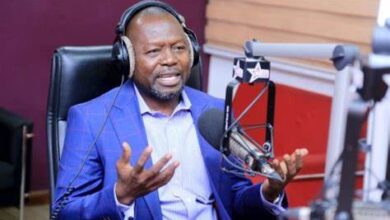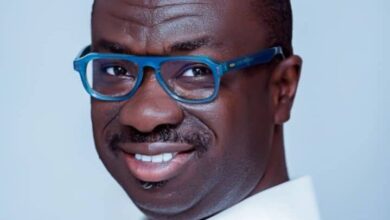What did they do with the Eurobonds? – Khalid slams NPP’s economic record

In a candid and sharp-toned commentary, Dr. Sharif Mahmud Khalid, an Economic Adviser to the Vice President Jane Naana Opoku Agyemang, has taken aim at the opposition New Patriotic Party (NPP) for what he described as reckless handling of Eurobonds and a culture of celebration over borrowed funds under their administration.
Speaking on Metro TV monitored by MyNewsGh, Dr. Khalid did not mince words as he lambasted the former government’s approach to external borrowing, characterizing it as superficial and unserious.
“We’re still asking—what did they do with the Eurobonds? What investments can they show for the loans?” he questioned. “Instead, we saw celebrations at the Ministry of Finance over bonds. Meanwhile, today, we’re the ones being asked to defend the economy.”
He labeled this pattern of behavior a “Ki party culture”—a sarcastic term referring to jubilations over inflows without regard for long-term fiscal responsibility or productive investments.
Dr. Khalid also took the opportunity to break down the rationale behind Ghana’s ongoing engagement with the International Monetary Fund (IMF), explaining that the program is not simply about receiving financial support but about imposing necessary discipline on a struggling economy.
“The IMF program gives you a watchman—some say a babysitter—because you’ve admitted you can’t look after yourself,” he noted. “That comes with financial discipline, internal tightening, and investor confidence.”
He argued that even the previous government, despite agreeing to IMF terms, missed critical tranches of funding due to noncompliance with the program’s basic requirements—underscoring what he called a deeper structural problem of indiscipline and mismanagement.
Turning his attention to broader global dynamics, Dr. Khalid expressed frustration at what he called the opposition’s selective contextualization of external shocks, especially concerning the Russia-Ukraine war and its impact on Ghana’s economy.
“They used the Ukraine war as an excuse, but when we mention global factors, they say we’re shifting blame,” he said. “Why is it a debate that the cedi is doing well? Shouldn’t we rather be asking what got us into that mess in the first place?”



